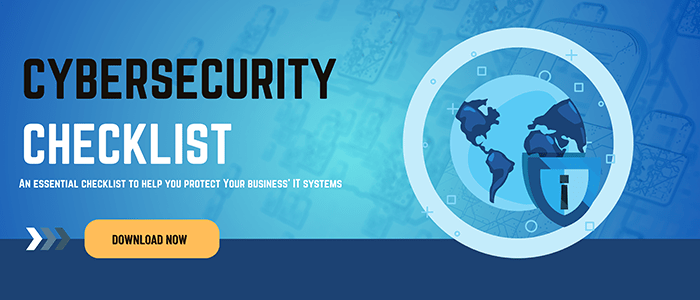The rising threat of Business Email Compromise (BEC) & how to safeguard your company

In today’s fast-paced business world, email is the lifeblood of communication. Whether you’re sending invoices, contracts, or internal memos, your business relies heavily on this tool to operate efficiently. However, as businesses increasingly depend on email, they also face rising cyber threats—especially Business Email Compromise (BEC) attacks. These attacks are targeting small and medium-sized businesses (SMBs) more than ever before, and the consequences can be devastating.
In this article, we’ll explore what BEC is, how it affects SMBs, and most importantly, what you can do to protect your company from falling victim to this growing threat.
What is Business Email Compromise (BEC)?
Business Email Compromise (BEC) is a sophisticated type of cybercrime where hackers impersonate trusted individuals within a company to trick employees into transferring money, sharing sensitive data, or granting access to critical systems. BEC scams often target individuals in finance, human resources, or operations, with the goal of initiating fraudulent transactions or stealing confidential information.
BEC is incredibly effective because it exploits human psychology—attackers rely on impersonating authority figures, creating a sense of urgency, or crafting highly convincing emails to make employees act without question.
Why SMBs Are Prime Targets for BEC Attacks
While large corporations have invested heavily in cybersecurity, small and medium-sized businesses are often left vulnerable. According to recent statistics, BEC attacks account for nearly half of all email-based cybercrimes, and SMBs make up a significant portion of the victims. Cybercriminals view smaller businesses as easier targets due to their typically less robust security measures and lower awareness of emerging threats.
Here are a few reasons why SMBs are at greater risk:
- Limited Cybersecurity Resources: Many SMBs have limited budgets for cybersecurity and often lack dedicated IT teams to monitor email systems for suspicious activity.
- Employee Vulnerability: Employees in SMBs may not be as well-trained in spotting phishing attempts or recognizing the signs of a BEC scam.
- Lack of Email Security Awareness: Small businesses may overlook the importance of securing business email accounts with multi-factor authentication (MFA) and other safeguards, leaving them exposed to attacks.
The Cost of BEC Attacks on Small Businesses
The financial impact of a BEC attack on an SMB can be severe. According to the FBI, BEC attacks have cost businesses billions of dollars in recent years. Victims often face:
- Direct financial loss: Fraudulent wire transfers and unauthorized payments are among the most common outcomes of a successful BEC attack.
- Reputation damage: Losing customer trust after a security breach can lead to a decline in business, long-term damage to brand reputation, and a loss of clients.
- Legal and regulatory repercussions: A breach of sensitive data could lead to legal action and regulatory fines for failing to protect customer information properly.
How to Protect Your SMB from Business Email Compromise
Securing your business email is not as complicated or expensive as you might think. With the right precautions, you can significantly reduce the risk of a BEC attack and protect your SMB from costly consequences. Here are the top strategies to safeguard your business email:
1. Implement Multi-Factor Authentication (MFA)
One of the most effective ways to secure your email accounts is by enabling multi-factor authentication (MFA). MFA adds an extra layer of protection by requiring users to verify their identity through multiple methods, such as a password and a one-time code sent to their phone. This significantly reduces the risk of unauthorized access to your email accounts.
2. Train Employees to Recognize Phishing Attempts
Human error is often the weakest link in cybersecurity. Therefore, educating your employees is critical. Regular cybersecurity training helps staff recognize the signs of phishing, including suspicious sender addresses, strange requests for funds, or urgency in email communications.
Encourage employees to always double-check the authenticity of any request, especially when it involves sensitive information or financial transactions.
3. Use Email Filtering and Anti-Phishing Tools
Investing in advanced email filtering solutions can automatically flag or block malicious emails before they reach your inbox. These tools use algorithms to detect and filter out spam, phishing attempts, and BEC scams, helping you stay one step ahead of cybercriminals.
4. Regularly Update and Patch Software
Outdated software and email systems can be exploited by cybercriminals. Regularly updating your business’s operating systems, email platforms, and antivirus software helps close security gaps and prevents attackers from exploiting vulnerabilities.
5. Create a Clear Protocol for Financial Transactions
Establishing clear internal protocols for handling financial transactions and sensitive data requests can prevent employees from acting on fraudulent emails. For example, require employees to verify all payment requests via a phone call with the sender, especially if the request is unexpected or urgent.
6. Monitor and Audit Email Accounts
Regularly monitor your business email accounts for any suspicious activity. Set up alerts for unusual login attempts and keep track of emails that are being sent from your domain. Early detection is key to stopping an attack before it can cause significant damage.
7. Invest in Cybersecurity Insurance
While prevention is crucial, having cybersecurity insurance can help mitigate the financial damage if your business does fall victim to a BEC attack. Policies often cover expenses like investigation costs, legal fees, and lost revenue.
As email continues to be a vital communication tool for SMBs, the risk of Business Email Compromise (BEC) is growing. The good news is that with the right approach and tools, you can protect your business from this serious threat. By investing in email security, training your staff, and implementing preventive measures like multi-factor authentication, you can greatly reduce the risk of a BEC attack.
Don’t wait for an attack to happen—take action today to secure your email systems and safeguard your business. If you need help, reach out to a trusted cybersecurity professional to ensure your SMB is protected from the rising threat of BEC.
Protect your business now! Contact us for a free consultation on securing your business email and preventing cyber attacks. Don’t leave your data vulnerable—let’s strengthen your defenses today!




